The 2030 Agenda for Sustainable Development is a global commitment to address key challenges and build a sustainable future for people and the planet. Signed in September 2015 by the governments of 193 United Nations member states, the Agenda consists of 17 Sustainable Development Goals (SDGs). These goals cover a wide range of issues, including environmental, economic, social and institutional aspects, with the aim of achieving 169 targets by 2030. This article will provide European People readers with a comprehensive overview of the European Union's (EU) proactive commitment to the 2030 Agenda for Sustainable Development.
Agenda 2030: A Collective Journey Towards a Sustainable Future
It is important to underline that the 2030 Agenda does not pretend to solve all the problems, but it constitutes a solid common basis from which to start, necessary to build a better future. The SDGs act as a guide to address global challenges in an integrated way, promoting coordinated actions at global level. The aim is to build a world in which everyone has the opportunity to live in an environmentally, socially and economically sustainable way.
This action program reflects the awareness that sustainability cannot be achieved without a holistic approach, considering the connection between environmental, social and economic aspects of development. Implementing the Agenda requires the collaboration of all sectors of society, including governments, businesses, non-governmental organizations and citizens. Only through shared effort and collective commitment can significant progress be made towards a more equitable, resilient and sustainable future.
In this new phase of global commitment, the participation of all countries is also required, without making distinctions between developed, emerging or developing countries. However, it is clear that the challenges and needs may vary according to different latitudes, cultures and national histories. What the States have in common is the importance of defining their own sustainable development strategy, adapted to their own realities, in order to pursue the Sustainable Development Goals (SDGs). This commitment requires the reporting of the results obtained, in the context of a process coordinated by the United Nations.
The 17 Sustainable Development Goals (SDGs) represent a comprehensive set of crucial challenges that balance the three fundamental dimensions of sustainable development: economic, social and ecological. These goals aim to address a wide range of issues, which can be summarized on the basis of five key concepts, the so-called 5Ps:
- People: eliminate hunger and poverty in all forms, ensure equality and dignity;
- Prosperity: ensuring prosperous and fulfilling lives in harmony with the surrounding environment;
- Peace: promoting peaceful, just and inclusive societies;
- Partnership: implementing the Agenda through strong partnerships;
- Planet: Safeguarding the planet's natural resources and climate for future generations.
The European Union's Resolute Commitment to the SDGs
The European Union (EU) has firmly adopted the Sustainable Development Goals (SDGs), highlighting a concrete commitment at both national and international level to promote equitable, sustainable and inclusive development. In collaboration with Member States, the EU has dedicated itself to the implementation of the SDGs, integrating them into its own policies and supporting the efforts of non-member countries, especially those in greatest need, through its external policies.
The contents of the 2030 Agenda are rooted in the principles and values on which the Union is founded. The prospect of sustainable development is not only a long-term objective, but is a formal and binding element for the EU, as stated in Article 3, paragraph 3 of the Treaty on European Union (TEU). The Article clearly underlines the Union's commitment to the creation of an internal market, indicating that this process should be guided by principles of sustainable development for Europe. These principles include balanced economic growth and price stability, the promotion of a highly competitive social market economy, oriented towards full employment and social progress. Furthermore, the Article highlights the importance of a high level of protection and improvement of environmental quality, thus reflecting the EU's awareness of the need to integrate sustainability into all spheres of economic and social activity. The EU is therefore committed to promoting scientific and technological progress as an integral part of its mission, recognising that innovation is a key element in achieving the Sustainable Development Goals.
The European Union (EU) has proactively positioned itself as a leader in the fight against climate change, demonstrating continued support for the objectives set by the Paris Agreement since its early stages. The EU has adopted strategies and policies consistent with the 2030 Agenda, extending its action to a wide range of key sectors. These sectors include the circular economy, research and innovation, employment and social inclusion, the protection of biodiversity and ecosystems, the sustainability of agriculture and food systems, as well as energy, buildings and mobility.
The Key Role of the European Commission
The European Commission, led by President von der Leyen, has further consolidated its strong commitment to the 2030 Agenda, presenting an ambitious strategic programme to achieve significant results on sustainability.
Overall, the European Commission has significantly boosted the process of promoting sustainable development. It has explicitly integrated the 2030 Agenda into the Union's decision-making mechanisms, starting with the European Semester procedure. The Commission has made concrete commitments to achieve a number of policy objectives closely linked to the Sustainable Development Goals (SDGs), requiring a significant mobilisation of resources and investments to achieve them. In this context, the Commission has outlined a new growth strategy, ambitious in its vision, aimed at positioning Europe as the first climate-neutral continent by 2050.
Sustainable development is a fundamental principle for the European Union and a key political priority for the Commission led by von der Leyen. This priority is clearly reflected in the six headline ambitions for Europe, announced in the political guidelines. These ambitions set out a broad and challenging vision, highlighting the Commission's commitment to moving the Union towards a sustainable future, not only environmentally but also economically and socially.
The European Commission's proactive approach highlights a concrete commitment to addressing global and local challenges, placing sustainability at the heart of the Union's decisions and actions. This integrated vision is key to achieving a meaningful and sustainable transformation, reflecting the awareness of the importance of a responsible ecological footprint for the future of Europe and the planet as a whole.
European People is committed to actively promoting awareness and understanding of the 2030 Agenda for Sustainable Development among its readers and aims to share the concrete actions of the European Union in pursuing the Sustainable Development Goals (SDGs) and in integrating sustainability into everyday policies and practices, contributing to building a conscious and sustainability-oriented society.



